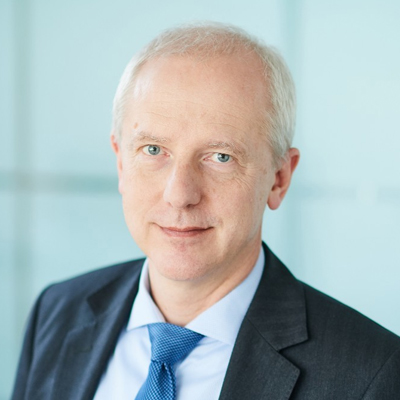Food Systems Podcast 42
In discussion with Jacob Hansen Podcast summary
Thursday, Mar 03, 2022
Fertilizer industry facing challenges from all sides
Conflict in Europe, rising gas prices, the rising cost of carbon credits – multiple factors are affecting the European fertilizer industry and this can only continue. Jacob Hansen, Director General of Fertilizers Europe, talks us through some of the issues and possible solutions, from investment in renewable electricity to reduce dependence on gas, to keeping a global level playing field for fertilizer manufacturers. For a taster, read our short summary below, or dive into the full 25-minute Food Systems Podcast for much more.
How will the tension b/ffa-podcastsetween Western powers and Russia affect fertilizer prices and the supply chain?
It’s too early to say. The European fertilizer industry is part of European society. If our leaders decide on sanctions, we will support and accept them. But decisions and sanctions have consequences. Obviously Russia is a very big gas supplier to European society. We are a very gas-dependent industry, and we need solutions for us to continue production.
Gas and electricity have already got vastly more expensive. What impact has this had?
Gas prices have gone up more than 500% since the summer and since gas is 80-90% of our industry’s variable costs, so the impact is huge. Farmers have seen much higher fertilizer prices – around 250%. The good thing for farmers is that the prices of crops have also gone up significantly.
We need to work closely with farmers to diminish the impact. We need to increase nitrogen use efficiency, and also phosphate and potassium to make sure that we get optimal growth to optimal biomass per unit of fertilizer use.
Are there still big gains to make in optimization?
We have gotten significantly better at optimization but there is still a lot of room for improvement. More precision farming, much better analysis of soil. We need to get more knowledge to farmers. We also need it to be recognized that farmers are making an effort and they need to be rewarded in the marketplace.
Could organic fertilizers plug the gap between reducing mineral fertilizers and maintaining yields?
Clearly not. There is not enough organic fertilizer to supply what we need. Organic fertilizer typically does not have the right balance of nutrients to reflect the need of the plant to grow optimally. You have to balance that with mineral fertilizers.
Going back to prices, there’s been a sharp spike in the cost of carbon credits as part of the EU’s emission trading system, from 25 euros per unit to 85 euros. What’s been the impact of that?
At the moment we emit a lot of CO2, and we are trying to reduce it. Roughly speaking, we produce 2 tonnes of CO2 per tonne of ammonia, so we pay 170 euros per tonne. The good thing is that, at the moment, 80% of this is refunded to the industry as part of what is termed “free allowances”.
Does the EU plan to get rid of these free allowances?
This is one of our big concerns. Under the Carbon Border Adjustment Mechanism, these free allowances will gradually be reduced with a lot of consequences. First, on the price we demand from farmers. If production gets more expensive, the product you sell will also have to get more expensive.
Second, we will not be competitive on the export market. And that is critical because we are a seasonal industry, so we need export markets. If we have to pay full carbon costs and our competitors don’t, it’s going to be very difficult for us.
How do you balance a good fertilizer industry with a legitimate need to reduce carbon emissions?
The Carbon Border Adjustment Mechanism is the right way to go, so there’s a level playing field in Europe. And we are transforming. But we want to make sure we can be part of the global economy while that happens.
As we start to transition to green fertilizers we will produce not on the basis of gas but of renewable electricity. If we want to speed up this development, there has to be an expansion of renewable electricity.
If you could give one policy or practical idea to create a more sustainable food system, what would it be?
I would focus on “how can we grow crops more efficiently?”. How can we increase nitrogen use efficiently? But we need to look at it not from the point of view of the individual sector, like organic manure, but what does the plant need? And I would like to have more discussion on how the whole food chain – retailers, consumers – can support this process.
If you have found this short summary interesting, there’s lots more to hear in the full 25-minute conversation. It is available now on iTunes, Podbean or Spotify or on this website.

Jacob Hansen
Jacob Hansen is Director General of Fertilizers Europe. Before joining Fertilizers Europe in February 2011, Mr Hansen was the...see more
